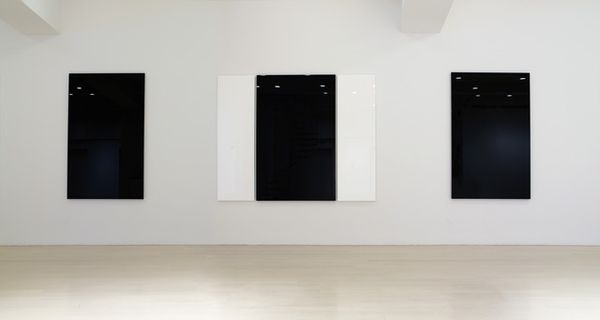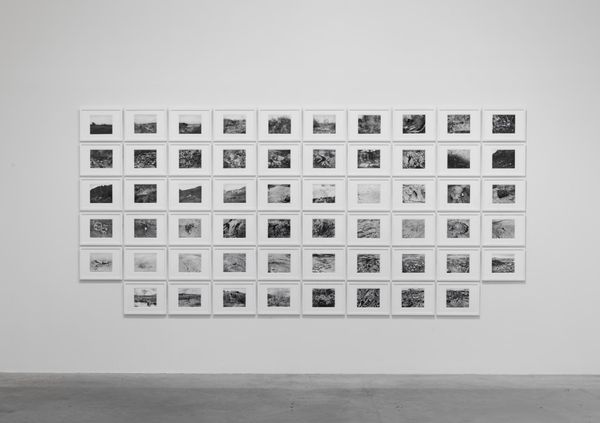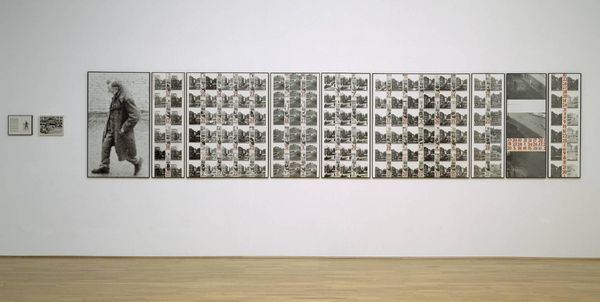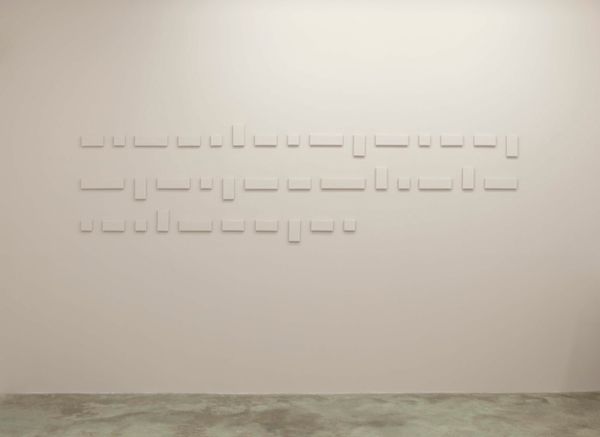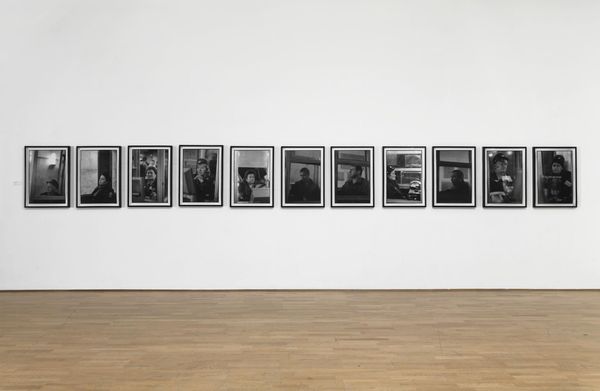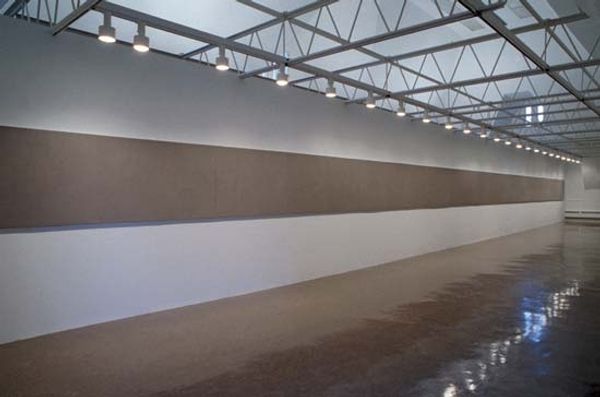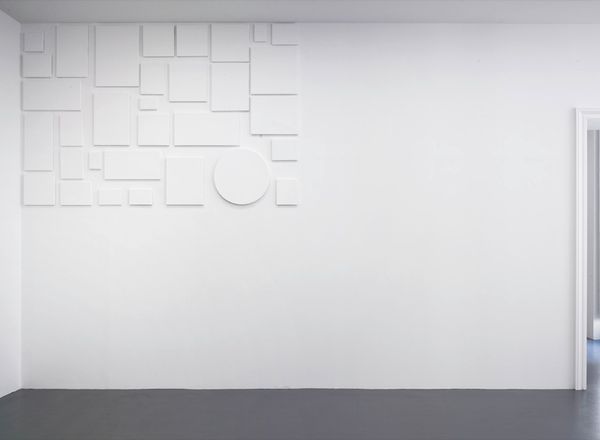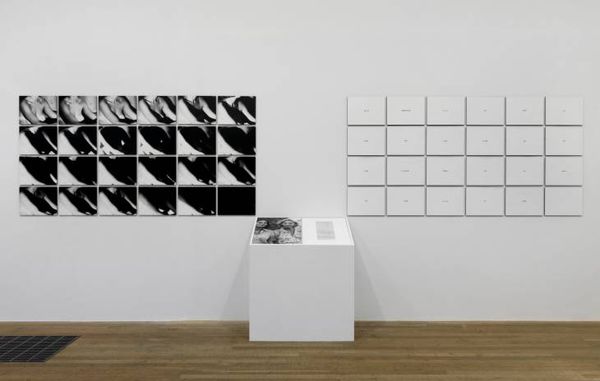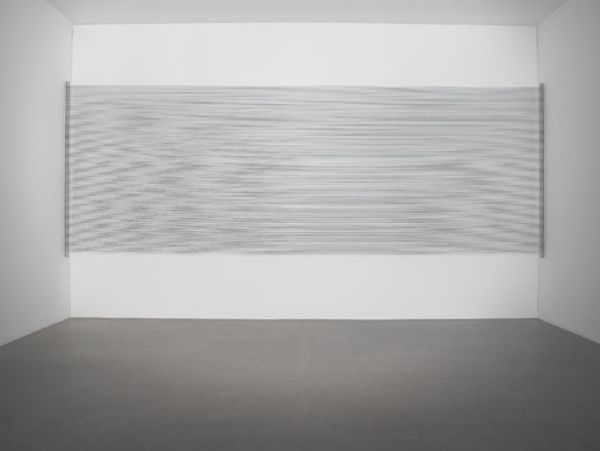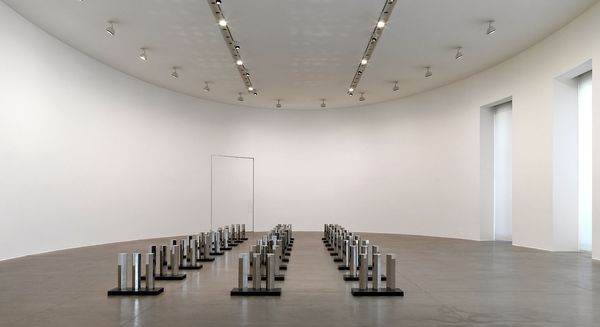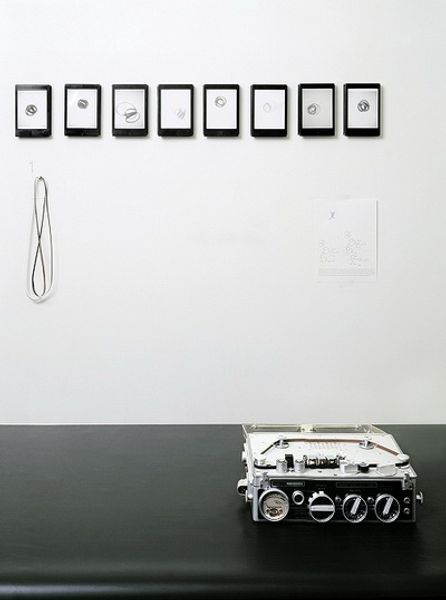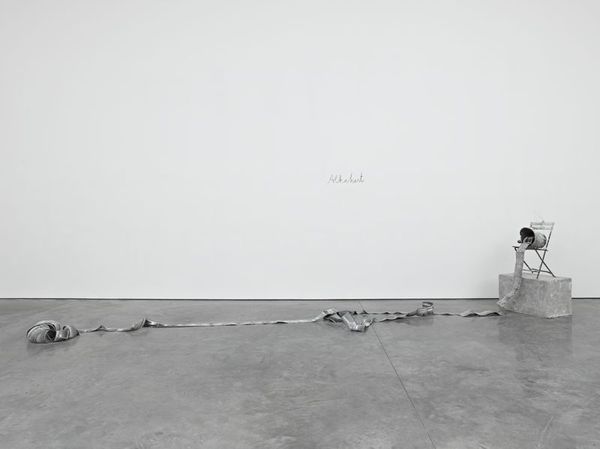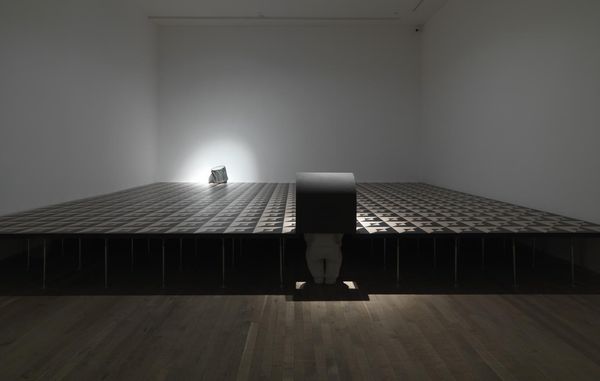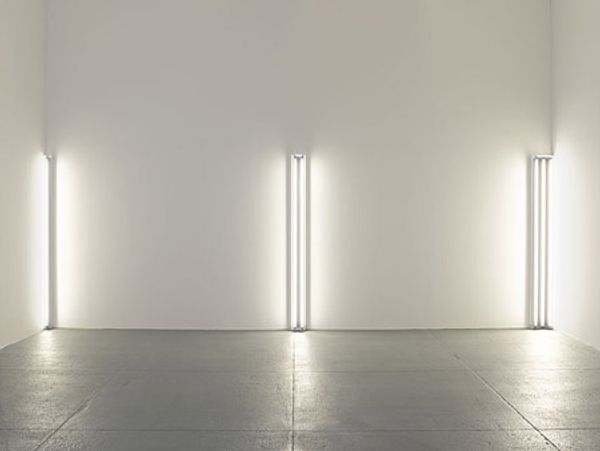
Copyright: Spencer Finch,Fair Use
Curator: Looking at Spencer Finch's "Thank You, Fog" from 2009, I'm immediately struck by its contemplative, almost mournful mood. The long line of framed photographs fading into the distance creates a feeling of relentless passing, doesn’t it? Editor: It does. It’s very much a meditation on perception. The uniform framing and the gradual shift in the image draw the eye and mind into a focused state. Finch is fascinated by how we filter and interpret the world. What strikes me here is how this piece isolates a single atmospheric phenomenon. Curator: And how does this artwork tie into Finch’s larger body of work? Because his art often seems concerned with ephemeral experience—moments, fleeting sensations… Editor: Exactly. "Thank You, Fog" is a fine example. The title itself is indicative of a personal gratitude to a specific environmental moment. It also underscores a link to serial and minimalist art, playing with repetition and incremental variation to force careful observation. I wonder, too, about the sociopolitical factors in abstracting and aestheticizing such a thing as "fog" during this particular time in history. After all, who precisely is being thanked in the wake of so much environmental damage, if anyone? Curator: Perhaps it's not only a thank you but also a plea. Looking deeper, one can argue these photographic pieces capture a shared sense of longing for nature, with "fog" emerging as both a literal subject, as well as a symbol of how that contact becomes veiled with nostalgia. Don’t you agree? Editor: It is certainly compelling to read nostalgia and yearning in the repeated images. However, what matters, for me, are questions about the implications of decontextualizing atmospheric phenomena through this process. Perhaps it is an attempt to prompt consideration on our human position as viewers of these ever-present occurrences? Curator: That’s an interesting way to think about it. Maybe Finch’s process serves to pull fog out of the everyday flow of sensory overload and ask viewers to dwell, even if momentarily, in the feeling it evokes. A feeling tied both to individual memory and to the historical context from which our appreciation blooms. Editor: Well, in reflecting on this installation I am reminded how our interaction with art always reveals as much about our own internal landscapes as about what hangs before our eyes. It's a gift, ultimately.
Comments
No comments
Be the first to comment and join the conversation on the ultimate creative platform.
